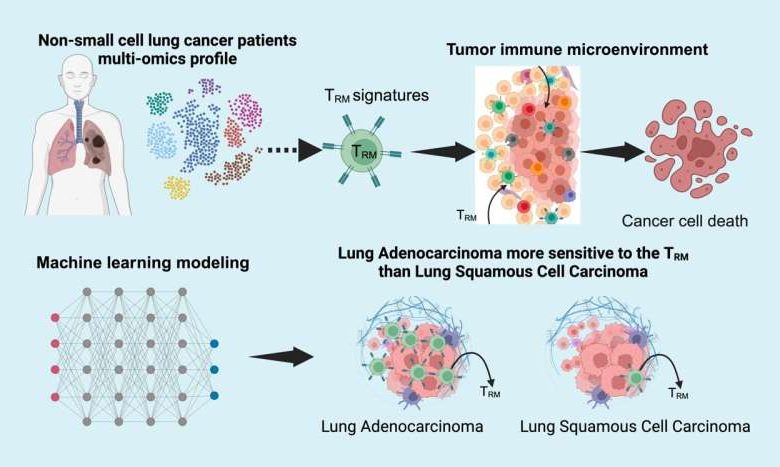Recent study reveals key immune cells as critical factors in lung cancer prognosis

An in-depth analytical investigation conducted at the Terasaki Institute and published in Frontiers in Immunology emphasises the critical function of tissue-resident memory T cells and how they affect the immunological milieu and overall prognosis of patients with non-small cell lung cancer.
About 85% of lung tumours are non-small cell lung cancer, which is also the primary cause of death for adults. It has been suggested that the development of cancer may be influenced by tissue-resident memory T cells, a specific population of immune cells found in peripheral organs. The impact of tissue-resident memory T cells on the tumour immune milieu and tumour progression in different patient populations with non-small cell lung cancer is still not completely known, yet.
Several different datasets from patient samples with lung cancer were examined in this extensive investigation. Furthermore, an 18-gene risk score that successfully divides lung cancer patients into low-risk and high-risk groups was refined through the development and validation of a machine learning model to predict patient survival. The 18-gene risk score is used in cancer research to forecast the likelihood of disease progression or recurrence, which aids in the development of individualised treatment regimens. Typically, the scores are separated into two categories: low risk and high risk, each defined by a set of thresholds.
Patients with high-risk scores in this study had overall survival rates that were significantly lower than those of their low-risk counterparts. There are specific Tissue Resident Memory T cell indicators that have been found to positively correlate with other immune cells in the tumour environment. Additionally, these indicators had a direct impact on patient prognosis due to their high associations with immune checkpoint and stimulatory genes.
Chief Scientific Officer of Terasaki Institute for Biomedical Innovation Dr. Xiling Shen stated, “The study’s findings highlight the critical impact of Tissue Resident Memory T cell abundance on immune responses and patient outcomes in lung cancer.” “Our findings not only validate these cells as a prognostic marker but also underscore their potential in guiding personalised treatment strategies, particularly in immunotherapy.”
This study offers a better knowledge of the intricate interactions between Tissue Resident Memory T cells and the tumour. It has been independently validated by the Cancer Genome Atlas Program and many datasets of lung cancer patients. This is a noteworthy advancement in the use of precision medicine to the treatment of lung cancer.




